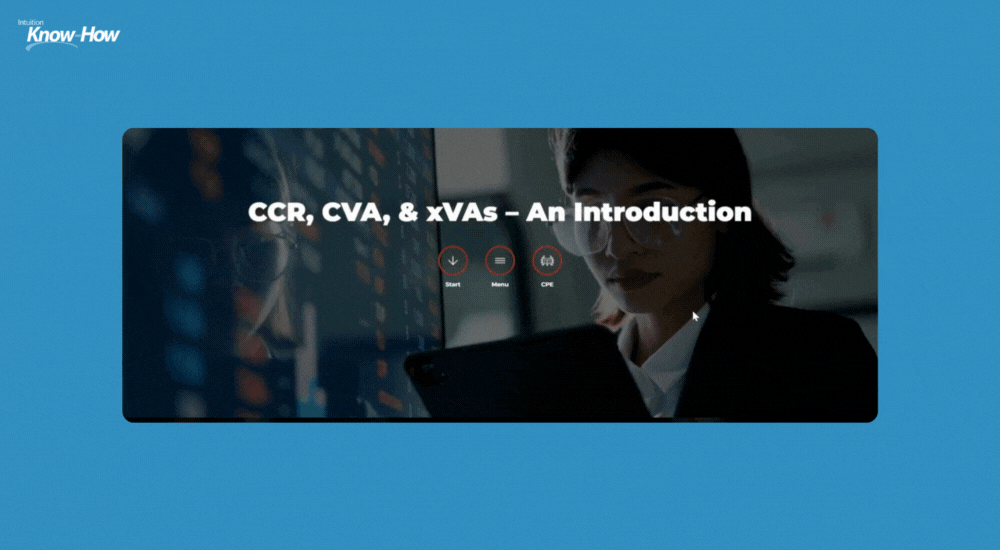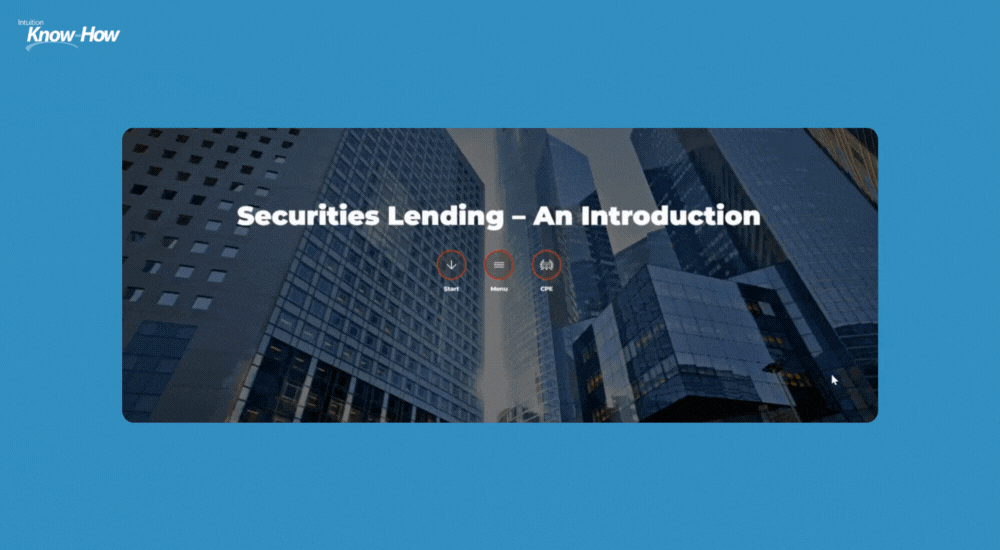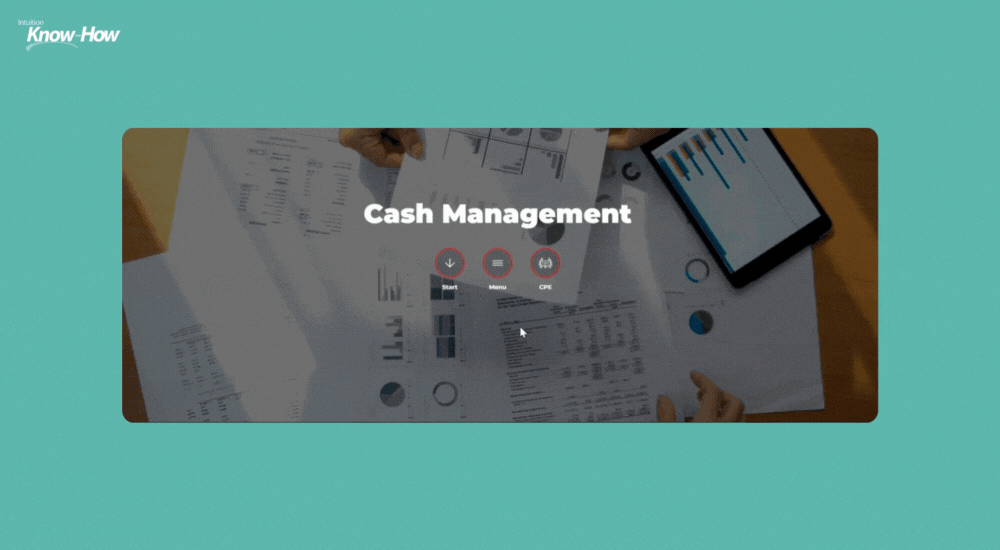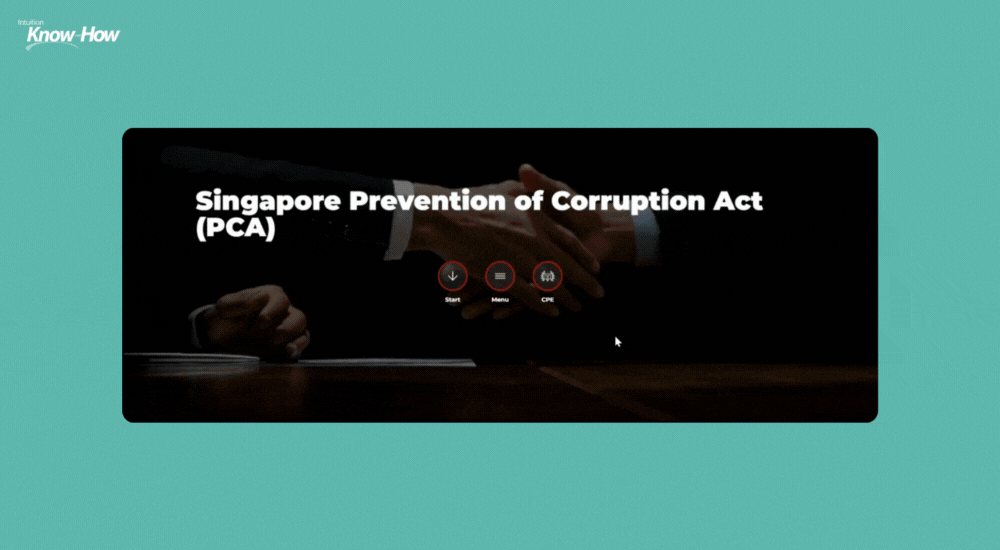Know-How spotlight: PayTech, crypto, risk management and more
Know-How is the go-to learning platform for anyone looking to deepen their knowledge of finance and stay ahead of the curve. With quarterly updated content written by financial experts, Know-How offers everything you need to stay informed, no matter where you are in your financial career.
In this article, we explain the importance of understanding evolving areas of the industry including PayTech, DeFi and crypto, risk management, and more.
Click one of the sections below to browse the individual sections of this article:
- Stay ahead in PayTech
- DeFi and crypto derivatives: Powering the future of digital assets
- Banking risk management: Mastering counterparty credit and interest rate risks
- Securities lending: Mastering the fundamentals and managing risks
- Financial management: A modern approach to budgeting, cash flow, and credit
- Singapore compliance: Navigating corruption prevention and data protection
Or continue browsing to learn more about Know-How.
Who is Know-How for?
Whether you’re just starting out or have years of experience, Know-How offers invaluable resources for building your expertise. From foundational topics to the latest trends, Know-How equips you with the knowledge you need to excel as a financial professional.
What makes Know-How stand out?
One of Know-How’s strengths is its content. Here’s what makes it exceptional:
670+ tutorials:
Covering a wide range of financial topics, from the basics to more advanced subjects like AI and ESG.
60+ hours of video:
Engaging, clear, and concise video content that brings complex financial topics to life.
Regular updates:
Every quarter, new tutorials and updates are released, ensuring that the content reflects the latest trends and insights.
Why choose Know-How?
Know-How tutorials are designed to go beyond theory, providing actionable knowledge you can use in your day-to-day work. The platform’s interactive videos, quizzes, and scenarios cater to all learning styles, ensuring everyone can benefit.
Plus, we’ve made accessibility a priority, so everyone can engage with the content, regardless of their learning needs.

When should you use Know-How?
Whether it’s adapting to new regulations, understanding emerging technologies like blockchain, or navigating changes in the industry, Know-How gives you the tools to stay informed.
How does Know-How deliver results?
Know-How is designed with real-world application in mind. The content is structured to help you put what you learn into practice right away, improving your performance and deepening your understanding of key financial concepts. And with a dedicated support team, you’ll always have help when you need it.

Stay ahead in PayTech: Why Know-How’s latest updates are essential
With the rise of FinTechs, digital wallets, and blockchain technology, traditional banking is no longer the sole player in the payments space.
Know-How introduces a recently revised series on payments that focuses on the rapidly growing PayTech sector, giving professionals the knowledge they need to navigate this evolving area.
Why is this relevant?
The PayTech landscape is evolving at speed, driven by innovations like digital wallets, “pay-by-bank” transactions, and cryptocurrencies. Non-bank operators, including FinTechs and Big Tech, are now challenging the dominance that banks have held for decades. The global rise of PayTech has fundamentally changed the way businesses and consumers handle payments, creating both opportunities and challenges.
With so many changes, staying informed is crucial. Know-How’s latest tutorials cover key topics such as:
- The evolution of money and payments
- Different types of money, from central bank digital currencies (CBDCs) to stablecoins
- The role of digital wallets
This content helps professionals understand the shifts in payment systems and how these innovations impact everything from transaction security to user experience.
Who benefits from this learning?
This course is designed for anyone that is seeking to understand the profound changes that have arisen in the payments industry in recent times. This includes not only staff at traditional retail and commercial banking businesses, but also those working for FinTechs, neobanks, and other firms operating in the growing PayTech sector.
Why this knowledge is essential
A deep understanding of the latest PayTech developments gives you the edge to navigate and influence the direction of payments. By adopting new technologies or advising clients on emerging trends, you can take informed steps that lead to innovation and efficiency within your organization.
For professionals interacting directly with clients, having this knowledge enhances your ability to explain complex payment systems clearly, positioning you as a trusted advisor. Meanwhile, those in operational or strategic roles will benefit from a solid grasp of new technologies, helping manage processes efficiently and ensuring alignment with evolving regulatory standards. This continual learning not only enhances day-to-day effectiveness but also prepares you for future challenges in an ever-changing financial landscape.

DeFi and crypto derivatives: Powering the future of digital assets
Know-How’s latest update expands its Digital & Crypto Assets series with tutorials on decentralized finance (DeFi) and crypto derivatives—two areas that are driving the future of the industry.
DeFi: Breaking down financial barriers
DeFi is eliminating the need for traditional intermediaries, such as banks, by leveraging blockchain technology to create decentralized systems for lending, borrowing, and trading. This shift is unlocking new opportunities for both individuals and institutions, but it also brings new complexities and risks that must be understood.
Know-How’s DeFi learning content provide insights into how decentralized finance operates, helping professionals master this fast-evolving ecosystem and seize the potential it offers. Armed with this knowledge, you’ll be prepared to navigate the opportunities and challenges of DeFi, putting you at the forefront of this financial revolution.
Crypto derivatives: The new frontier in trading
As the market for crypto derivatives grows, understanding these financial instruments is crucial. Know-How’s tutorials on crypto derivatives dive into this exciting area of the industry, explaining not only how they work and their benefits but also the risks and regulations shaping their use.
These lessons provide the strategic knowledge needed to leverage crypto derivatives effectively, making them indispensable for professionals looking to engage with the expanding world of digital assets.
Who should develop this knowledge?
These tutorials are suitable for anyone with an interest in the digital/crypto asset universe, including both new hires and experienced professionals who wish to expand their knowledge of this area as it becomes more mainstream.
Staying ahead in digital finance
Mastering DeFi and crypto derivatives allows you to make strategic decisions that directly impact your organization and career. By staying informed and proactive, you position yourself as a forward-thinking leader who is ready to embrace the new era of finance.
This knowledge isn’t just valuable—it’s crucial for anyone looking to shape the future of finance.

Banking risk management: Mastering counterparty credit and interest rate risks
Effective risk management is essential for the survival and success of any financial institution. Know-How’s revised series on Banking Risk Management delivers updated tutorials focused on two critical areas—Counterparty Credit Risk (CCR) and Interest Rate Risk—offering professionals the tools they need to manage these risks with precision.
Counterparty credit risk: Protecting against defaults
Managing CCR is a top priority for banks and financial institutions due to the potential impact a defaulting counterparty can have on financial stability. The newly updated CCR tutorials cover the core concepts, from calculating current and potential future exposure to understanding advanced techniques like credit value adjustment (CVA) and other valuation adjustments (xVAs).
Professionals will learn how to manage CCR through techniques such as netting, collateralization, and termination clauses. With this deeper understanding, you’ll be able to mitigate risks more effectively, safeguard portfolios, and ensure regulatory compliance under frameworks like Basel III.
Interest rate risk: Managing volatility in earnings and value
Fluctuations in interest rates can have far-reaching consequences on a bank’s earnings and economic value. Know-How’s refreshed tutorials on Interest Rate Risk guide professionals through the essential strategies banks use to measure and manage this risk. Topics include the calculation of exposures, the use of interest rate derivatives, and regulatory expectations.
By mastering these tools and techniques professionals will be equipped to navigate the challenges posed by interest rate movements and protect their organizations from volatility.
Who benefits from this knowledge?
These courses are aimed primarily at new recruits working in investment and commercial banking businesses. More experienced personnel – such as credit analysts, fixed income professionals, treasury staff, and relationship managers – looking for a refresher on CCR and interest rate risk measurement and management may also find the course useful.
Why mastering these risks matters
Mastering the intricacies of CCR and Interest Rate Risk is not just about compliance—it’s about gaining the skills to protect your organization from potentially devastating financial losses. This knowledge positions professionals to make informed, strategic decisions that minimize risk while enhancing overall financial performance. As regulatory demands tighten and market volatility persists, staying sharp on risk management has never been more crucial.

Securities lending: Mastering the fundamentals and managing risks
The securities lending market is an integral part of modern finance, enabling institutions to enhance liquidity and generate additional revenue streams. With Know-How’s significant updates and revisions to the Securities Lending series, financial professionals can gain a thorough understanding of the structure, risks, and operational intricacies of securities lending.
Unlocking the mechanics of securities lending
Know-How’s revised series provides an in-depth look at the core components of securities lending transactions. It breaks down the structure of these transactions, explaining the key differences between those collateralized by cash and those backed by securities. Professionals will also explore the role of third-party agents and the critical functions they serve in facilitating securities loans.
Understanding these mechanics equips professionals to manage transactions more efficiently and identify potential opportunities within the securities lending market.
Who benefits from this learning?
This course is primarily designed for new recruits to banks and other financial institutions but may also be useful for senior or experienced staff looking to refresh their knowledge of today’s securities lending business.
Why mastering securities lending is crucial
Securities lending plays a vital role in ensuring liquidity and stability within financial markets. For institutions, it offers opportunities to enhance portfolio performance, but only with the right risk management strategies in place. By mastering these updated tutorials, professionals gain the ability to navigate the securities lending landscape with confidence, ensuring their institutions capitalize on these opportunities while maintaining a firm grip on risk controls.

Financial management: A modern approach to budgeting, cash flow, and credit
Effective financial management is the backbone of every successful business. With Know-How’s newly redesigned Financial Management series, professionals gain access to updated content that reflects today’s best practices in budgeting, cash management, working capital, and more. These tutorials provide the tools and knowledge to master financial decision-making in nonbank corporate environments, ensuring that companies remain financially resilient and efficient.
Budgeting and financial planning: Building strong foundations
Budgeting is fundamental to financial health, and Know-How’s redesigned tutorials offer a comprehensive look at how businesses should approach their financial planning. The content covers key aspects of forecasting, budget setting, and monitoring performance against financial goals. With a focus on real-world applications, professionals will learn how to create and manage budgets that align with strategic objectives, ensuring financial stability and flexibility.
Who should take this learning?
This course covers the key aspects of financial management in nonbank corporates. While it is aimed primarily at those responsible for day-to-day financial management tasks in such firms, corporate and investment banking staff will find that it offers valuable insights into how corporates approach financial management and planning.
Why mastering financial management matters
Companies need to be agile, efficient, and financially sound. These updated tutorials provide the knowledge to ensure your organization can meet its financial goals while mitigating risks. Whether you are responsible for budgeting, managing cash flow, or assessing credit risk, mastering these key areas will improve your ability to contribute to your company’s financial success and long-term stability.

Singapore compliance: Navigating corruption prevention and data protection
Compliance with local laws and regulations is essential for any organization operating in Singapore’s robust financial market. Know-How features two critical tutorials—one on the Singapore Prevention of Corruption Act (PCA) and another on the Singapore Personal Data Protection Act (PDPA). These tutorials equip professionals with the knowledge needed to stay compliant and navigate the increasingly stringent regulatory landscape in Singapore.
Understanding the Prevention of Corruption Act (PCA)
The Singapore Prevention of Corruption Act (PCA) is a cornerstone of the nation’s regulatory framework, aimed at combating bribery and corruption across industries. This brand-new tutorial provides a thorough exploration of the PCA, explaining its key provisions, scope, and the severe penalties for non-compliance.
By mastering this content, professionals will gain a clear understanding of how to identify, prevent, and respond to corruption risks within their organization. Whether you’re in compliance, legal, or management roles, this knowledge is essential for ensuring that your company upholds ethical standards and avoids legal consequences.
Staying compliant with the Personal Data Protection Act (PDPA)
The Singapore Personal Data Protection Act (PDPA) governs how organizations collect, use, and disclose personal data. Know-How’s recently updated tutorial provides the latest insights into PDPA regulations, offering practical guidance on how to ensure compliance with data protection laws.
Professionals will learn how to manage data securely, respect individuals’ privacy rights, and implement best practices for data governance. This knowledge is crucial for reducing the risk of data breaches and avoiding hefty penalties that can result from non-compliance.
Who should take this learning?
These tutorials are essential for anyone working within or with organizations in Singapore.
Compliance officers, legal professionals, data protection officers, and business leaders will benefit from understanding the implications of the PCA and PDPA. The content is also valuable for professionals in finance, operations, and IT, as regulatory compliance impacts a wide range of business activities in Singapore’s highly regulated environment.
Why mastering Singapore compliance is critical
With Singapore’s reputation as a global financial hub, the stakes for non-compliance are high. Corruption prevention and data protection are not just legal obligations—they are fundamental to maintaining trust, safeguarding business operations, and protecting your company’s reputation. By mastering these areas, professionals can ensure that their organization remains compliant with Singapore’s strict regulations, mitigating risk, and securing long-term success.

If you would like to learn more about Know-How, please click here or the button below.


